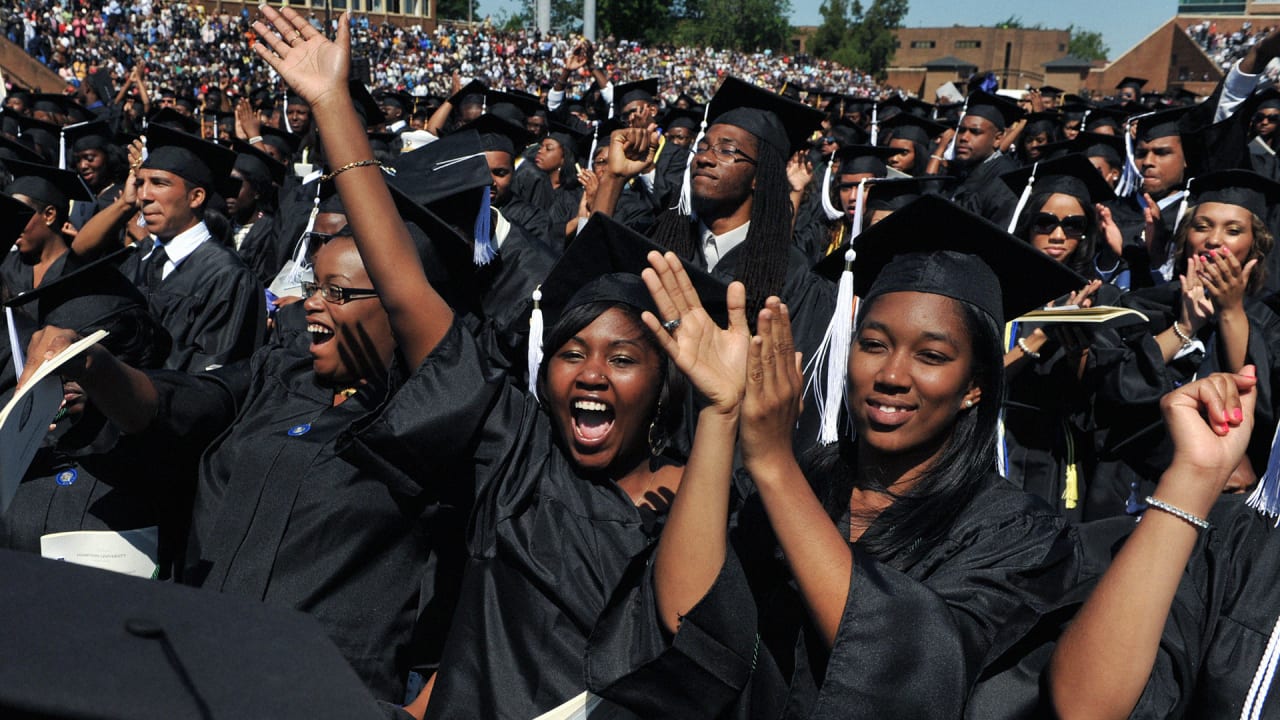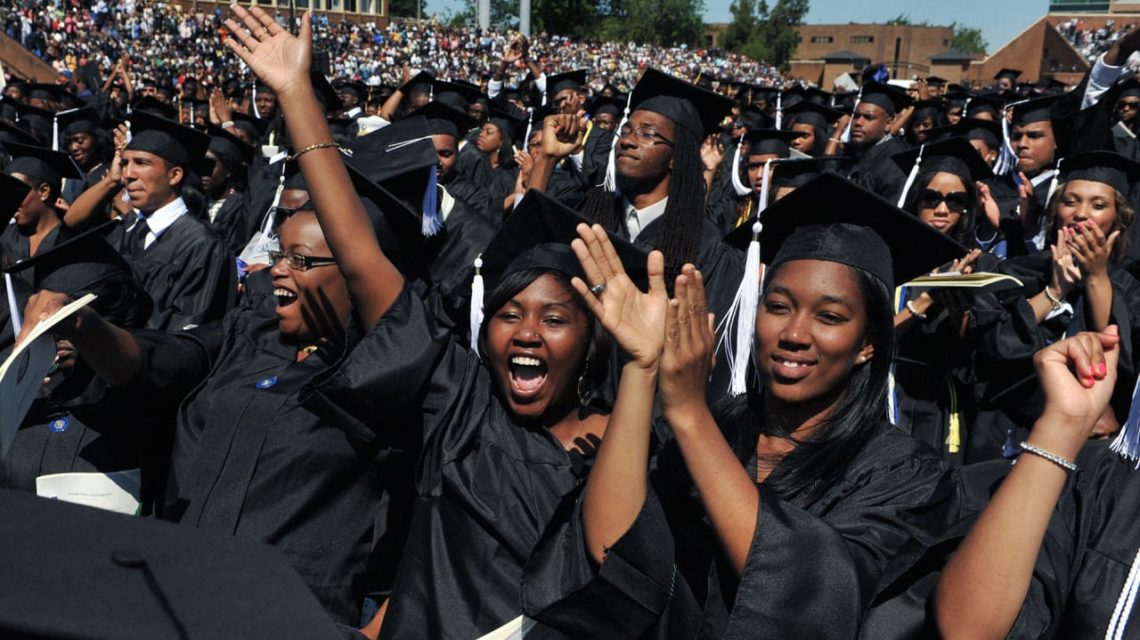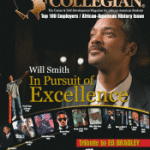By Brittney Oliver
Fast Company, February 27, 2018 —
As Silicon Valley blames the “pipeline problem” for its lack of diversity, there’s untapped talent at HBCUs. Meet a few people working to change the ratio.
How many times have you seen a report where today’s top tech companies admit to struggling to recruit top diverse talent? Only 2% of Google’s workforce is black, and at Twitter, just 3% of the workforce is black. Meanwhile, as Uber struggles to solve their diversity issues, they wrote a blog stating that they needed to increase their presence at historically black colleges and universities (HBCUs).
At many of the big tech companies, recruitment efforts have been limited to the same few schools in the Bay Area and Ivy Leagues or candidates from their social circle, which continue to keep companies predominantly male and white.

Hampton University graduation [Photo: Jahi Chikwendiu/The Washington Post via Getty Images]
PLACING 20,000 HBCU GRADS BY 2020
When Nicole Tinson-Johnson graduated from Dillard University in 2014, she was optimistic about her future. By the end of her senior year, she had completed eight internships. Still, she had no job prospects by the time she graduated, so she decided to pursue her master’s degree at Yale Divinity School. It was there that she noticed the difference in access to career opportunities. “I began to think about how many of the Fortune 500 companies and tech companies gravitated toward Yale to recruit students, but never visited my HBCU. As I began to connect with more HBCU graduates, I listened to their stories about how they also thought they did everything right, but still couldn’t find a job in their field.”
After graduating from Yale, Tinson-Johnson returned to her hometown of Los Angeles where she realized even her Yale master’s degree did not alleviate the obstacles she would face in her job search. Black college graduates face an unemployment rate that is two times the average of their white counterparts, according to the Economic Policy Institute. After a month of applying for jobs, she finally landed a job as a policy director for a local nonprofit. But just six months in, she quit to found Jobs R 4 U, a nonprofit that aims to help minorities find jobs, with her husband, Dennis Johnson. “After being dissatisfied with the work environments we were in, we launched Jobs R 4 U, and began partnering with local and national organizations to host workshops and career fairs for free in Los Angeles,” she explains.
“Often we are not taught to build social capital. We are taught to graduate from high school, go to college, and figure it out afterwards,” Tinson-Johnson says. This year, the couple decided to add an extension to Jobs R 4 U by founding HBCU 20×20 initiative where their goals are to find employment for 20,000 HBCU grads by 2020 and help close the opportunity and access gap. “We sat down and mapped out each HBCU. We said, ‘What if we visited every HBCU, connected with students, hosted workshops, and connected them to opportunities, and also found unique ways to engage with people who have already graduated?’” she said.
By working to start their partnership with corporations to find job placements for HBCU students and alumni, the couple discovered why many of these companies are not recruiting from HBCUs. “We began reaching out to companies to say, ‘Hey–we are working to increase diversity within your industry by connecting you to talented students and graduates from HBCUs.’ Companies would either tell us they were already connected to HBCUs because they recruit from Howard and Spelman, or they didn’t know what an HBCU was at all.”
RECRUITING BEYOND HOWARD AND SPELMAN
Slowly, some of the top tech companies are beginning to recognize the potential. Google, Goldman Sachs, and Spotify have created initiatives to recruit or engage with talent from HBCUs.
Still, most of the recruitment efforts for black grads are concentrated on just a few top HBCUs. When Google announced their Howard West program (which was recently extended to all HBCU students) or when Beyoncé shared her Formation Scholarship with Howard and Spelman women, an uproar took place on the internet about the lack of opportunities that are presented to the other schools that make up the HBCU collective or black students at predominantly white institutions. Frustrations occur often when companies spend their resources at only a select few HBCUs, leaving many students without those face-to-face interactions with recruiters.
Ariel Lopez, founder of 20/20 Shift, works with tech and digital media companies to diversify their recruitment process. She helped Spotify launch The Opening Act: HBCU Conference. The conference, which started in 2016, introduces HBCU sophomores, juniors, and seniors to professionals in the music tech and media industries. According to Lopez, many of the attendees received job and internship opportunities in tech and media because of the event, and Spotify has hired successfully from the event and used it as a way of building a pipeline of potential talent.
Lopez also noticed the lack of knowledge companies have about the HBCU landscape. “There are so many misconceptions about HBCUs, and more specifically, hiring black talent and people of color. The first is that the only HBCUs that exist or are worth visiting are Howard, Spelman, and Morehouse. Although they are incredible schools, there are over 100 HBCUs in the country that all have aspiring techies. One thing I loved about The Opening Act is that we spent a ton of time making sure we had representation from as many schools as possible. We wanted to ensure that everyone has equal access, regardless of where they decided to attend. The other misconception is that all black students go to HBCUs. Companies don’t spend nearly enough time building relationships with students of color at predominantly white institutions that are not Ivy League schools. There are plenty of colleges and universities that go overlooked, so campus recruiting in general needs a transformation,” Lopez said.
As organizations like HBCU 20×20 and 20/20 Shift continue to help companies with recruitment, they are also helping helping HBCU students and alumni gain opportunities to expand their social capital and knowledge about the STEM opportunities available to them. “We are disrupting the ways students and graduates prepare and connect to opportunities. We aren’t just a job board. We are truly interested and meeting people where they are and assisting them in getting to where they need to go,” says Tinson. Other HBCU initiatives helping to connect talent to recruiters and open HBCU students up to the career opportunities in tech include HBCU.vc, UNCF’s HBCU Innovation Summit, and HBCUxSXSW.
HBCU 20×20 already has partnerships with companies like SpaceX, Hyperloop-One, REVOLT, Greenpeace, City Year, and Uber. “I want an HBCU student or graduate to be the person in the Falcon 9 that goes into space within the next 10 years, and it would be amazing for them to have come through HBCU 20×20,” says Tinson-Johnson. Launched on Labor Day 2017, has already connected 107 people to jobs and internships. “I’m sure we’ll make our 20,000 mark before 2020 with the continued support,” Tinson-Johnson adds.












